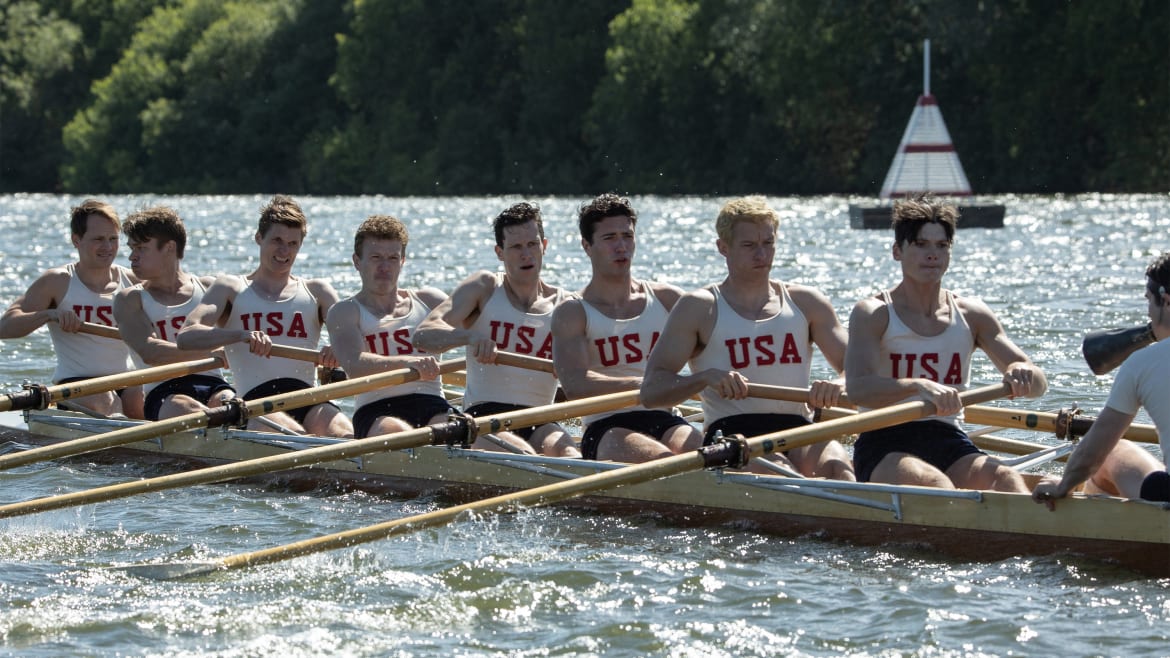Laurie Sparham/Amazon MGM Studios
Save for The Ides of March, no feature directed by George Clooney has been set in the present—and only 2020’s The Midnight Sky took place in the future. Behind the camera, Clooney has a fondness for nostalgic period pieces, and he continues humoring it with The Boys in the Boat, a dewy-eyed based-on-real-events sports saga whose bland conventionality is epitomized by its generic title. On the way to its triumphant finale, the filmmaker’s latest (an adaptation of Daniel James Brown’s non-fiction book) hits many of the right feel-good notes. Unfortunately, it also strikes a lot of discordant ones, neutering most of its attempts at rousing inspiration.
The story of the University of Washington rowing team that bucked expectations to win the gold medal at the 1936 Olympic games in Nazi-controlled Berlin, The Boys in the Boat (in theaters Dec. 25) starts strong, with cinematographer Martin Ruhe’s images of the sun-dappled water melding seamlessly with shots of rowers’ hands, arms, and bodies moving in time with the current. Alexandre Desplat’s accompanying musical compositions lean into the sequence’s melodramatic atmosphere, the result being a form-content synergy that establishes rowing as a sport predicated on the harmony between man, craft, instrument, and nature. Better still, Clooney achieves this without any exposition that might make such notions obvious and turn the proceedings leaden.
Alas, working from Mark L. Smith’s script, Clooney can’t resist telling as well as showing for long. On the water, respected Washington coach Al Ulbrickson (Joel Edgerton) explains that all crews covet “swing”—the state of rowers being in perfect unison—and that “most crews never find it. But when they do, rowing is more poetry than sport.” In case that point wasn’t clear enough, the film concludes with another team member reminiscing wistfully about his buddies, “We were never eight. We were one.” Though synchronization is vital to these athletes’ success, Clooney’s habit of demonstrating something visually—occasionally beautifully—and then complementing it with a ham-fisted pronouncement is par for the material’s course, and constantly interferes with the lyricism he seeks.

